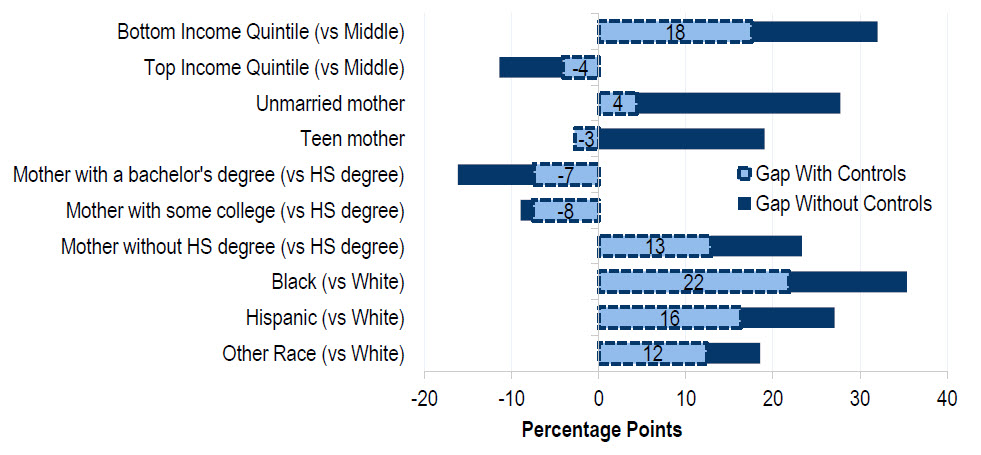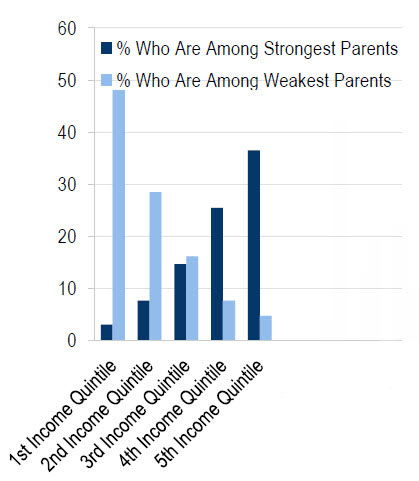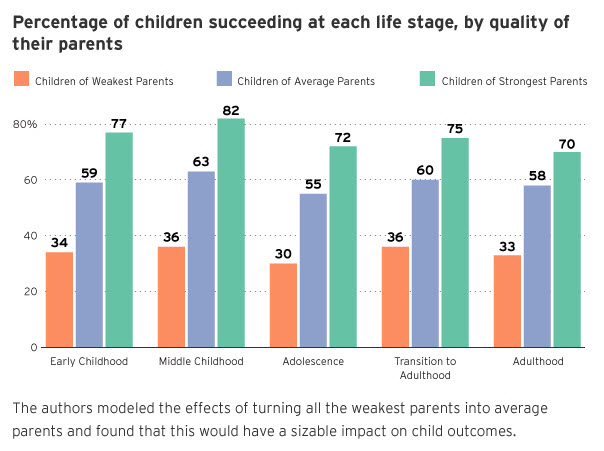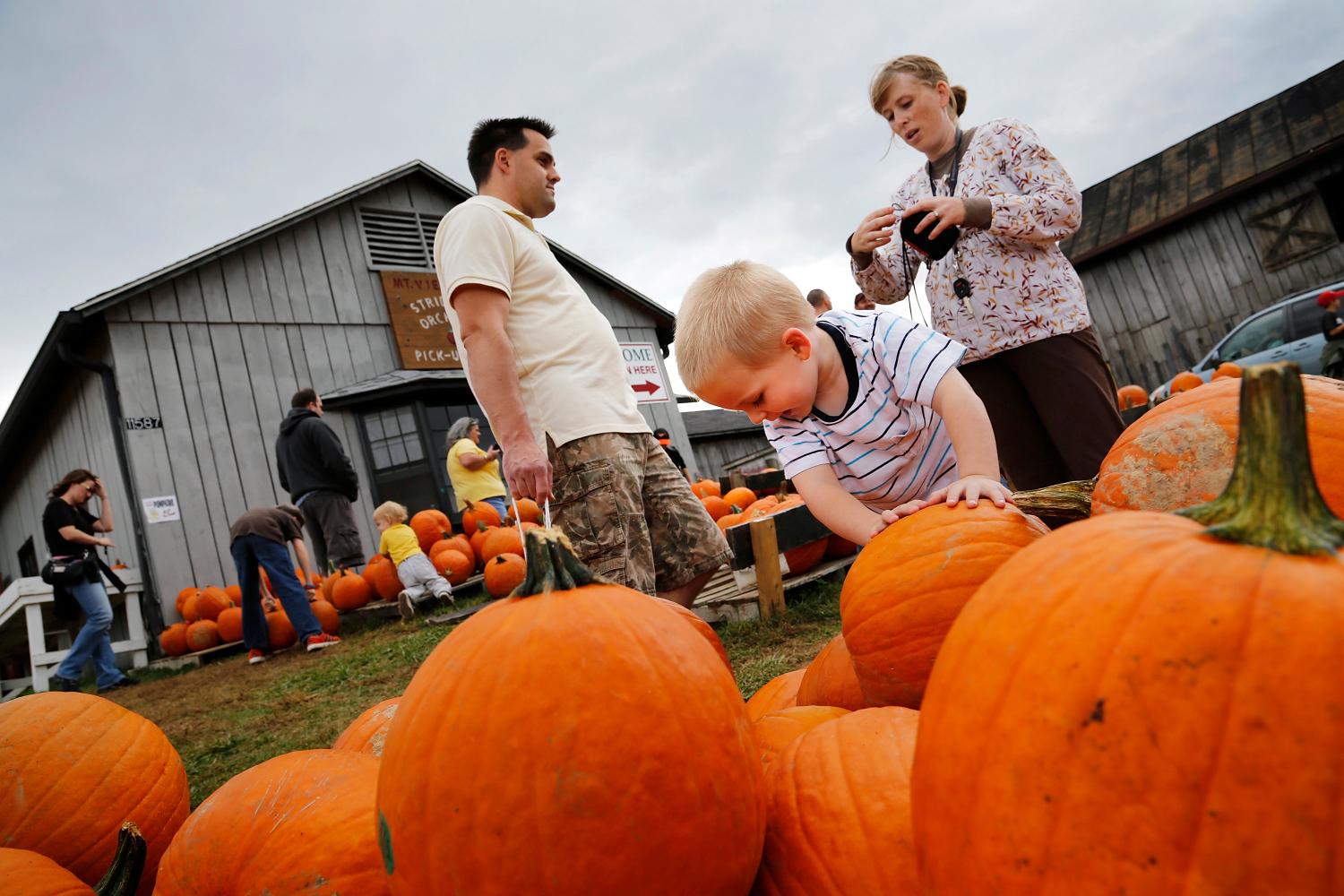According to a new Center on Children and Families paper by Richard Reeves and Kimberly Howard, the parenting gap is a big factor in the opportunity gap. The chances of upward social mobility are lower for children with parents struggling to do a good job – in terms of creating a supportive and stimulating home environment. Children lucky enough to have strong parents are more likely to succeed at all the critical life stages, which means policies to help weaker parents do a better job can be investments in opportunity, and equality.
Here are some key findings from the paper:
- The quality of U.S. parenting, as measured on the HOME scale, strongly varies by income, family structure, race, and education. Parents in the bottom income quintile are 18 percentage points more likely than middle-income parents to score among the weakest parents.


- Children of the strongest parents are more likely to succeed at each stage of their lives than children of the weakest parents. By the end of adolescence, three out of four children with the strongest parents graduate high school with at least a 2.5 GPA, while avoiding being convicted of a crime or becoming a teen parent. By contrast, only 30 percent of children with the weakest parents manage to meet these benchmarks.

- Improving the parenting quality of the weakest parents to that of average parents would result in 9 percent more of their children graduating from high school, 6 percent fewer having a child by 19, and 3 percent fewer having a criminal conviction by 19.

- Strengthening parents’ emotional support skills could improve teen pregnancy and criminal conviction outcomes while strengthening parents’ cognitive stimulation skills could improve high school graduation and GPA.
- Implementation of evidence-based parenting programs, such as HIPPY, could have meaningful effects for individuals and society. If all low-income children were enrolled in HIPPY, we estimate that 3 percent more of them would graduate from high school and 6 percent fewer would become teen parents.
- Current U.S. policy is slanted toward supplementing the efforts of parents, with programs such as Head Start, rather than building the skills of parents themselves.
The Brookings Institution is committed to quality, independence, and impact.
We are supported by a diverse array of funders. In line with our values and policies, each Brookings publication represents the sole views of its author(s).




